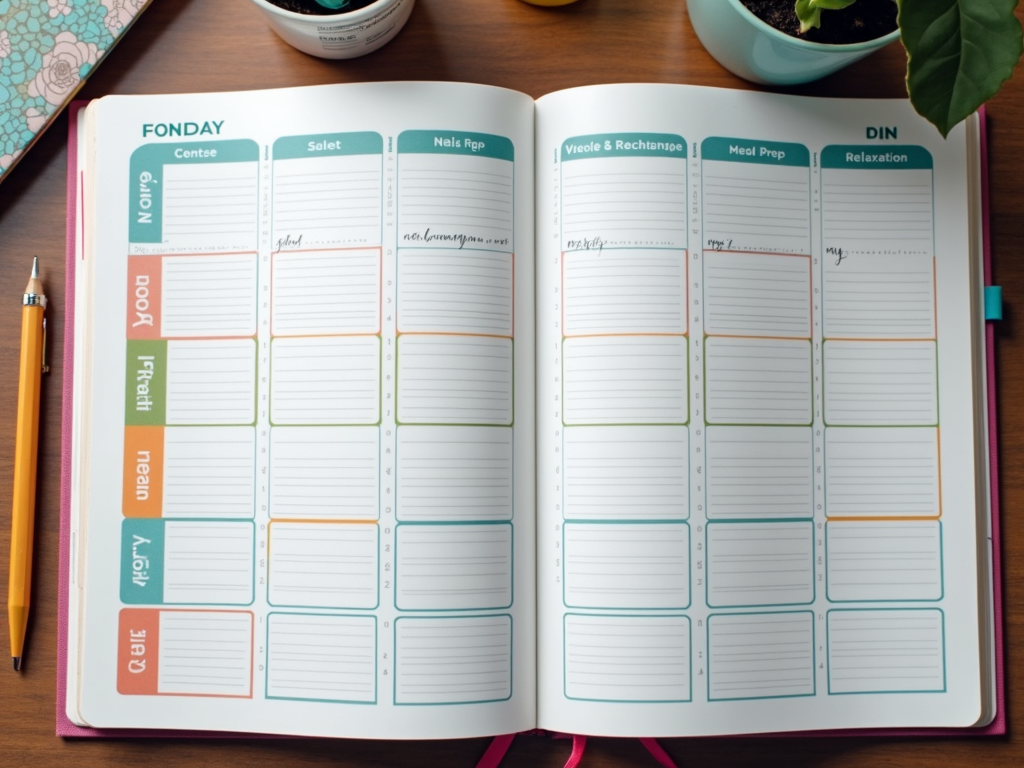Overview
In today's fast-paced world, balancing work and health can feel like a daunting task. With deadlines looming and responsibilities piling up, it's easy to neglect our well-being. However, maintaining a healthy lifestyle is crucial for long-term success and happiness. This article explores effective strategies to help you achieve a harmonious balance between your professional and personal life.

Understanding the Challenges
One of the biggest challenges in balancing work and health is managing stress. Chronic stress can lead to burnout, decreased productivity, and serious health issues. Another common obstacle is time management. Many people struggle to find time for exercise, meal preparation, or relaxation amidst their busy schedules.
Additionally, health conditions such as chronic fatigue can significantly impact daily life. Chronic fatigue syndrome (CFS) is characterized by extreme tiredness that doesn't improve with rest and can worsen with physical or mental activity. This condition can make it difficult to perform even simple tasks, let alone maintain a full-time job.
Similarly, chronic health conditions like Chronic FPIES (Food Protein-Induced Enterocolitis Syndrome) can pose unique challenges. Chronic FPIES is a rare food allergy that causes severe gastrointestinal symptoms, requiring careful dietary management. For individuals with such conditions, balancing work and health requires extra planning and support.
Strategies for Balancing Work and Health
Time Management
Effective time management is key to balancing work and health. Here are some tips:
- Prioritize tasks: Focus on high-impact activities and delegate or eliminate less important ones.
- Set boundaries: Establish clear work hours and stick to them. Avoid checking emails or taking work calls during personal time.
- Schedule health activities: Treat exercise, meal prep, and relaxation as non-negotiable appointments in your calendar.

Stress Reduction
Reducing stress is essential for maintaining health. Consider these techniques:
- Mindfulness and meditation: Practice being present and calm your mind.
- Hobbies and leisure activities: Engage in activities you enjoy to unwind.
- Social support: Connect with friends and family for emotional support.

Physical Activity
Regular exercise is vital for physical and mental health. Try to:
- Incorporate movement into your day: Take short walks, use a standing desk, or do desk exercises.
- Find an activity you enjoy: Whether it's yoga, dancing, or team sports, choose something that motivates you.
- Set realistic goals: Start small and gradually increase intensity and duration.

Nutrition
Healthy eating fuels your body and mind. Tips include:
- Meal prep: Prepare healthy meals in advance to avoid relying on fast food.
- Stay hydrated: Drink plenty of water throughout the day.
- Balanced diet: Include a variety of fruits, vegetables, lean proteins, and whole grains.

Mental Health
Taking care of your mental health is just as important as physical health. Be aware of signs of burnout, such as irritability, lack of motivation, or difficulty concentrating. Seek professional help if needed, and don't hesitate to take mental health days when necessary.

Managing Chronic Health Conditions
For those with chronic health conditions like Chronic FPIES, additional strategies may be necessary:
- Work with healthcare providers: Develop a management plan that accommodates your work schedule.
- Communicate with employers: Discuss your condition and any necessary accommodations.
- Join support groups: Connect with others who understand your challenges.
Chronic FPIES symptoms can be particularly challenging, as they require strict dietary management. Packing safe meals and informing colleagues about dietary restrictions can help manage the condition while at work.
Personal Insights
As someone who has struggled with balancing work and health, I can attest to the importance of these strategies. For years, I prioritized work over my well-being, leading to chronic fatigue and burnout. It wasn't until I started implementing time management techniques and prioritizing self-care that I began to see improvements in both my health and productivity.
One thing that helped me was setting strict boundaries between work and personal time. I also found that regular exercise, even just a 20-minute walk, made a significant difference in my energy levels and mood.
Conclusion
Balancing work and health is an ongoing process that requires intentionality and effort. By implementing effective strategies such as time management, stress reduction, physical activity, proper nutrition, and mental health care, you can achieve a healthier, more balanced life. Remember, it's not about perfection but progress. Start small, be consistent, and celebrate your successes along the way.

Discuss Here